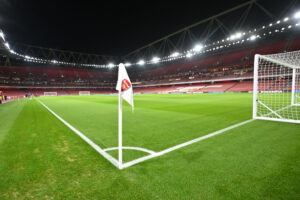After another weekend of controversy in the Premier League, calls for VAR are getting louder and louder. It was trialled in some games last season and at the FIFA 2018 World Cup with mixed reviews. It has solved issues in some cases and added more controversy in others. Last word on Football looks at VAR, whether it is ready for use and, ultimately, whether it is time to bring it into force.
Football Controversies: Can VAR Solve Them?
VAR (Video Assistant Referee) was created to aid officials with key decisions. When there is doubt over a decision, a referee can call on a team of officials who monitor the action on screens. Usually, they are in a building away from the event self.
The system should only be used in four circumstances. For penalty decisions or fouls that may or may not have been committed in the lead up to a penalty being awarded; for cases of mistaken identity – it doesn’t happen too frequently but if there is a case where the wrong player has been booked or sent off, VAR can review this; for red card incidents; for incidents taking place in the lead up to a goal, such as players being offside.
This means that any incidents outside of the penalty area are not reviewed unless they are directly influential on a goal being scored or penalty being conceded. Sounds simple, doesn’t it?
Who is in Charge of VAR?
This is an area that needs to be addressed. As it stands, it can be either the referee or the VAR team who call for it to be used. The referee does not have to take a look, though. The VAR team are there to make a ‘recommendation.’ If that team see that something is clearly wrong, the referee needs to be looking at that or the system becomes irrelevant. However, it is not in place to overrule the referee.
The referee also has another choice. They can take the verbal advice or check the screen at the side of the pitch, as seen in the World Cup. Does this not make it even more confusing to operate? Does this not make decisions even more long-winded? Isn’t the whole idea to make sure correct decisions are made in a timely manner?
When VAR Works and When it Doesn’t
England benefited in the World Cup in Russia from VAR but were also victims of the system as well. It surrounded penalty calls. Against Tunisia, there were clear fouls not given and then in subsequent games, similar fouls were given. What VAR did was to allow the officials in subsequent games to be more aware of what was happening in the penalty box.
VAR was used in last season’s FA Cup in fifth round replay between Tottenham Hotspur and Rochdale. The Match descended into farce as a consequence of VAR. Ultimately, Spurs ran out 6-1 victors but the point remains that this game highlighted just how far VAR has to progress.
Tottenham manager Mauricio Pochettino said at the time that the decisions were embarrassing for all concerned:
“The first half was a bit embarrassing for everyone,” said Tottenham manager Mauricio Pochettino. “I am not sure that the system is going to help. Football is about emotion. It is a contest of emotion and if we are going to kill emotion in football, the fans, the people who love football, are not so happy about what they saw”
After six minutes, Erik Lamela scored and the two teams were getting ready to restart the match. The official consulted VAR and the goal subsequently ruled out for Fernando Llorente committing a foul in the lead up to the goal. The viewing nation could see it was clear that Llorente was fouled and the decision was baffling. If those operating the system cannot get decisions right with all the technology they could ever wish for, then it is not going to make life any easier for the officials. It will antagonise the watching fans.
Southampton v Watford – Could VAR Have Helped?
On Saturday 10th November, Southampton took on Watford in the Premier League at St Mary’s Stadium. With Southampton a goal to the good, Charlie Austin scored a second to secure three vital points for the home side until the referee deemed that Maya Yoshida was offside. Replays clearly show that the player is not interfering with play and the goal should have stood. There was also reason for Watford to complain as Ryan Bertrand committed a clear foul in the penalty error but nothing was given. Both Mark Hughes and Charlie Austin vented about the officials at full time with Hughes accusing the Premier League of living in the ‘dark ages’ for not introducing VAR.
The key question is whether VAR would have got those decisions right. Last season showed that VAR still got things wrong and the delays with decisions being made were embarrassing.
Conclusion
The jury is still out but VAR has to be introduced sooner rather than later. Promotions and relegation, championships and trophies are all on the line. But those that are developing the system need to make sure it works efficiently. Those that operate the system must also be better trained. What we saw last season and in the World Cup were inconsistencies. VAR is there to get the close calls correct. To make sure that the officials get the help they clearly need.
Before all that, though, the officials on the pitch and operating the VAR must be fully trained to do their jobs. Until that changes, VAR will simply not work.
Main Photo






